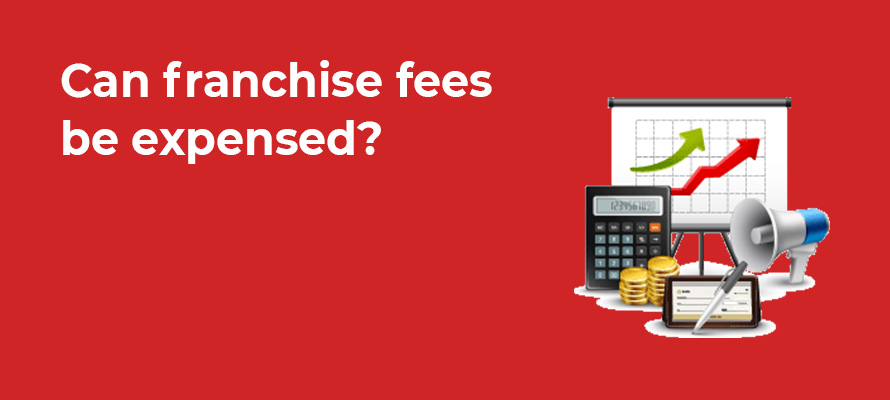Franchising is one of the most profitable fields for business-owners. For small-time owners that are willing to be franchised into a more prominent company, franchising is an excellent opportunity to learn too. As soon as these smaller companies pay an upfront franchising fee and are willing to sacrifice a portion of their regular profit as royalties, any company can become a franchisee of a bigger franchiser.
Of course, not everyone can pay such a hefty ransom of money to a big corporate.
This article is dedicated to providing all information on whether franchise fees can be expensed or not.
List of franchise fees
Several fees are accounted with franchising. Some franchises have more upfront costs and other fees than the others. It often depends on the size and quality of the franchiser. Here are some of the fees includes while franchising:
Initial costs
Franchisees must pay a relatively large sum of money over to a franchisor to start the relationship between the two companies. This initial sum only covers the contract and relationship fees and is usually non-refundable.
The very nature of the fees is usually discussed with the franchiser in detail during one of the preliminary interviews. These costs can change from location to location, depending on what the franchiser deems necessary.
There is a rule. However, that binds all franchisees from being unable to pay the initial fees fully. The rule dictates that the fees must be amortized over a fixed span of 15 years.
Continuing fees
The continuing fees are not as big of an issue as initial costs. It is because most continuing fees are taken as a part of the profit that the franchisee makes over a fixed period. This period is determined in the contract that both parties mutually sign and agree upon.
Usually, the royalties are an annual contract, but many franchisers demand a monthly fee instead.
After the amount is set in the contract, the continuing fees do not change. There might be special occasions, but most legalities don’t let you change the continuing fees.
Renewal fees
All franchise contracts last for a specific time. It is usually determined in the contract and affects the other fees too. After the given pre-determined time, the contract expires. Franchisees have to renew the contract between the franchisee and the franchiser.
The fees that franchisees have to pay for renewal is usually the same as the initial costs. In other words, you must commit to another amortization.
Training fees
The franchiser deducts a few hundred or thousand dollars from your account as training fees. It usually consists of training the staff the new rules of the business, as well as helping ensure that the entire system of working of that business is up to date with the franchiser’s tried-and-tested version.
Supplies fees
Naturally, with training comes supplies. These supply fees are usually payments that are required to buy the necessary supplies so that the franchisee is equipped with everything that the franchiser deems necessary to run the business.
In the case of many food-chain restaurants, this includes a complete make-over of the franchisee. It helps the franchisee accurately represents the entire franchise as a whole.
Optional – Marketing fees
Some franchisers even push marketing fees, which is a fund that is designed for marketing campaigns. It usually includes the day-one opening celebratory fees, as well as fees for marketing on digital mediums or through physical media.
This marketing fee is usually a recurring fee, and there are only a few rare cases of the marketing fee being a one-time fee.
Taxes
Naturally, all of a franchisee’s payments that are being given to the franchiser come with taxes. These taxes are always a fixed percentage of the payment. Taxes apply to all initial and continuing costs.
Miscellaneous fees
Other than taxes, and regular recurring fees, franchisees also have to pay a certain amount of miscellaneous fee. This fee can include many different things like travel fees, salaries to more employees, independent marketing fees, and other fees.
Can franchise fees be expensed?
Now that we know the general fees that are to be paid during franchising, we move towards figuring out whether franchise fees can be expensed or not. Here are some conditions that you might want to consider:
Amortization as a tax deduction
You can apply for a tax deduction for the amortized payment because they are usually recurrent charges. The number of charges that can be deduced usually depends on gross income. In most states, these charges are at least 5 to 7% of the gross income.
Ask for the IRS help.
The Internal revenue Service, or IRS, can help deduct the tax on your franchise fees if you claim that your franchise fees are merely business expenditure. You might need to provide more documents, but in the long-term, this hassle is worth the savings on potential taxes.
Tag as federal income tax
Most federal income tax is deductible. If you tag your initial and recurring franchise fees as general business expenses, a considerable amount of tax can be reduced quickly. You can also reduce the state’s franchise tax this way. Do note that you can not stack federal income tax reduction with state income tax reduction.
Apply for tax return
You can also apply for a tax return, which allows you to get most of your tax money back at the end of each year. It is a perfectly proper technique and is used by most businesses out there. You can then put this tax return into your amortized account to account for the amortization.
Haggle your way
As a businessperson, haggling should come as an instinct. A right business person knows when haggling is required. Haggling can allow your business to adjust most of your other fees easily.
If possible, you can also reduce the overall initial and recurring fees that you are going to pay to your franchiser. Bonus points if the franchiser is impressed with your haggling skills because contacts are everything in a good business.
Ways to reduce account stress
Some ways are designed to help reduce the stress on your business account. Because of Section 197, you need to amortize your initial cost – which is already a big help for any company that wants to become a franchisee. Here are some other ways to reduce stress, and ensure that your business does not have unnecessary strain:
Split the payment into smaller parts
Section 197 already amortizes your fees into annual payments, but you can personally break that down into even smaller parts: for example, months.
A simple way to do that is to divide your current annual amortizing fees by 12. Do note that you will have to pay the exact amount to the amortizing account each month, or it will increase the burden on your business again.
Predict customer flow
Another thing that might help reduce the stress in your head is to factor in the customer flow after franchising. If your franchise with a brand that has enough recognition, customers will start using your product because of that brand’s name.
Predict how many customers will come every month and determine whether the customer flow can offset the large payments that franchising can cost.
Claim royalties as business expenditure
Another trick that most businesses use to reduce the burden on their accounts is claiming that the royalties that they pay to the franchiser are a business expenditure that is not used to grow the business. It can result in the reduction, or total deduction of the tax on all continuing fees, if not more.
Deduct the first-time fees
A fixed amount of start-up costs can be deducted if the start-up cost does not exceed a pre-defined number. In most cases, the limit is $50,000, where $50,000 can allow you to deduct up to $5,000 from your first-time fees. It allows you to amortize only the rest of the $45,000 over the lifespan of the amortization or the contract.
Don’t end the contract pre-emptively
Ending the contract pre-emptively can make your business hurt massively. It is because if you end the contract before the expiry date, you will have to pay the rest of the amortized money upfront. Another thing to notice is that as soon as the contract ends, the franchiser has no obligation to help you grow more like a business. The right to use brand names will also vanish, resulting in a reduced customer base.
If you count in the potential media coverage, this can cannonball into a situation that is not only dangerous for your bank account but also your reputation as a business person.
Final Thoughts
These are all the several ways that you can reduce your franchise fees. To answer the central question of “can franchise fees be expensed” – the short answer is yes, in many scenarios, some of the franchise fees can be expensed. Like we mentioned earlier, you can also haggle your way around the franchiser to reduce your overhead and other fees that might seem like overkill.















